Introduction
Applied Behavior Analysis (ABA) therapy is widely recognized for its transformative impact on children with autism, offering a structured approach that fosters essential skills and reduces challenging behaviors. This method, grounded in principles of behavior analysis, promotes positive changes that enhance learning and development, significantly benefiting both the child and their family. As highlighted by experts in the field, including Dr. David Offord, the engaged and well-supported participation of children with disabilities in various life domains is a fundamental determinant of their mental health.
ABA therapy equips parents with effective strategies to support their child's progress, creating an environment where children with autism can thrive. Understanding the myriad benefits of ABA therapy empowers families to advocate for necessary interventions, ensuring their children's well-being and equitable participation in society.
Benefits of ABA Therapy for Children with Autism
Applied Behavior Analysis (ABA) intervention is acknowledged for its important contribution to assisting young individuals with autism in acquiring vital skills and minimizing difficult behaviors. By utilizing principles of behavior analysis, ABA therapy promotes positive changes that encourage learning and development, benefitting both the individual and their family. As Dr. David Offord highlighted, "Engaged, peaceful and well-supported participation of children and youth with disabilities in the major school, home, and leisure domains of their lives is a fundamental determinant of mental health." This structured approach equips parents with strategies to support their offspring's progress, fostering an environment where children can thrive. Comprehending these advantages enables families to advocate for the necessary interventions to ensure their offspring's well-being and equitable participation in society.
Improved Social Skills Development
One of the main advantages of ABA therapy is its emphasis on improving social interactions. Through targeted interventions, young individuals learn to interact appropriately with peers and adults, understand social cues, and develop meaningful relationships. This enhancement in interpersonal abilities can result in heightened self-assurance and a stronger sense of inclusion, which are essential for the emotional health of youngsters with autism.
As Dr. Jan Blacher, a research professor at UC Riverside, mentioned, the understanding of autism has evolved significantly, leading to more inclusive and effective interventions. ABA therapy is designed to address these diverse needs, ensuring that every individual, regardless of their specific challenges, has the opportunity to thrive socially.
Furthermore, the significance of social abilities development is highlighted by the fact that involved and well-supported engagement in social activities is a fundamental factor of mental well-being. This is especially crucial for young individuals with disabilities who are at a higher risk of social exclusion. By concentrating on interpersonal abilities, ABA treatment not only assists youngsters with autism in blending more effectively into their communities but also promotes their overall mental health and wellness.
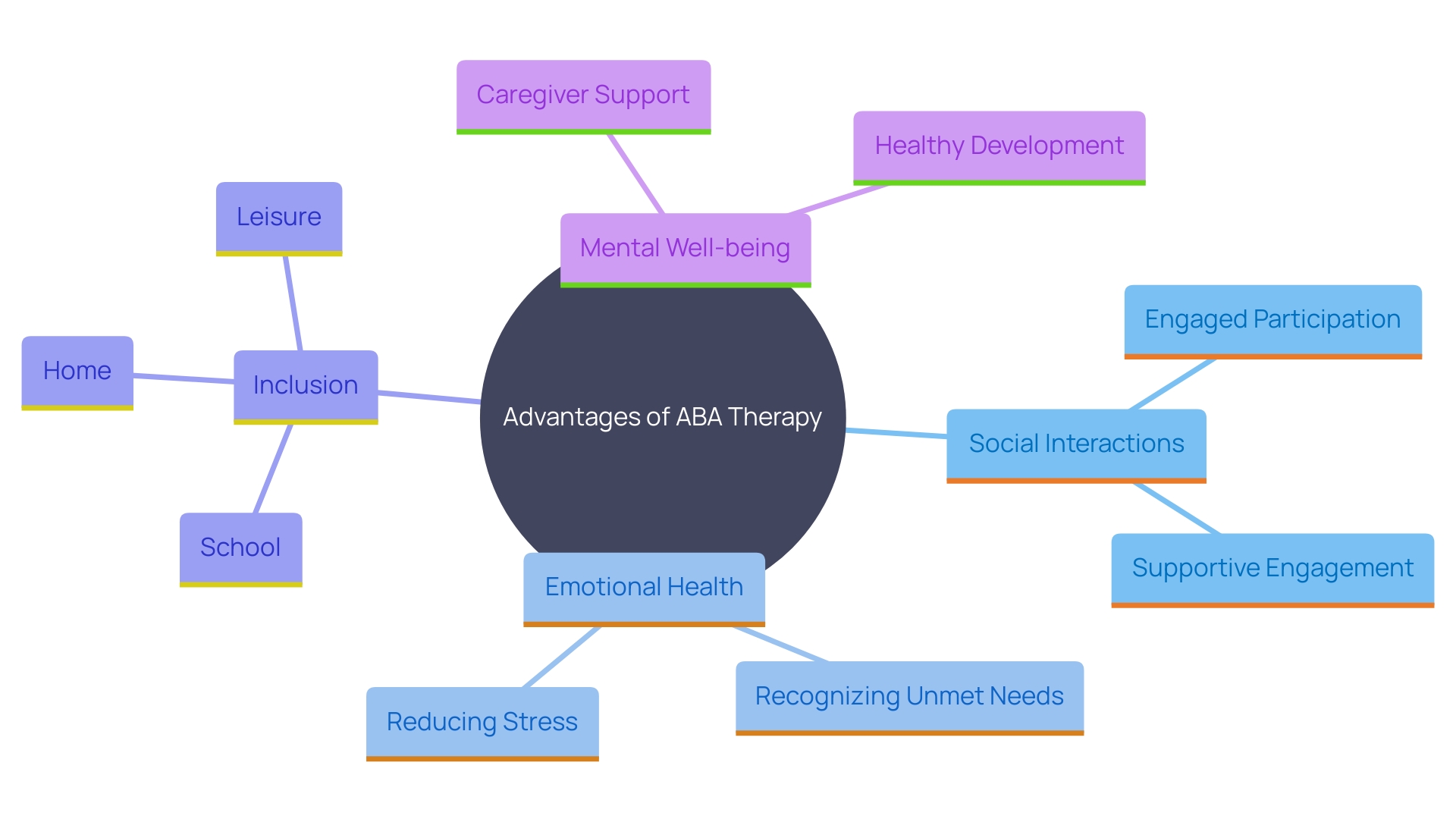
Enhanced Language and Communication Skills
ABA therapy significantly enhances language and communication skills. Through tailored communication strategies, therapists enable young individuals to articulate their needs and emotions more effectively. This improvement in communication not only facilitates smoother daily interactions but also strengthens bonds with family and friends, promoting emotional and social growth. Active involvement in home and social activities is crucial for mental well-being, as pointed out by Dr. David Offord, who stressed the significance of a supportive atmosphere for young individuals with disabilities. Through ABA treatment, young individuals acquire the capacity to engage more significantly in their communities, lowering stress and promoting well-being.
Reduction of Challenging Behaviors
Numerous young individuals with autism display difficult behaviors that can obstruct their daily activities and family life. ABA therapy utilizes various techniques to address and reduce these behaviors, assisting young individuals in learning appropriate responses and coping mechanisms. This reduction in challenging behaviors can create a more harmonious home environment and allow for more enjoyable family interactions.
Dr. David (Dan) R. Offord, a psychiatrist for young people, emphasized the significance of a fair and supportive environment for youth, including those with disabilities. His insights emphasize the necessity to acknowledge unmet requirements and resources, alleviate persistent stress, and guarantee that caregivers possess the means to foster their offspring's healthy growth and family well-being.
'ABA intervention plays a crucial role in achieving these goals by instructing youngsters with autism on how to manage their behaviors effectively.'. This approach not only enhances the quality of life for young individuals but also nurtures a more harmonious and involved family dynamic, contributing to the overall mental well-being and fairness of the community.
Increased Independence and Self-Care Skills
ABA therapy emphasizes the cultivation of vital self-care abilities to promote autonomy in individuals with autism. It imparts essential life techniques such as dressing, grooming, and meal preparation, which enhance young people's confidence in their capabilities. This newfound independence is not only advantageous for the young one but also helps ease some responsibilities from parents, creating a more balanced family dynamic. Pediatric occupational therapist Kara from Florida shares that many young people today lack these experiences and skills. By implementing independence treatment and educating parents, she has seen significant improvements in her patients. One notable success story involves an 11-year-old girl with higher support needs on the autism spectrum, who made remarkable progress through this approach. Involving young individuals in self-care tasks is vital for their mental health and well-being, as it encourages calm and well-supported involvement in everyday life. This approach aligns with the social model of disability, which emphasizes the importance of understanding disability in a social, political, and cultural context.
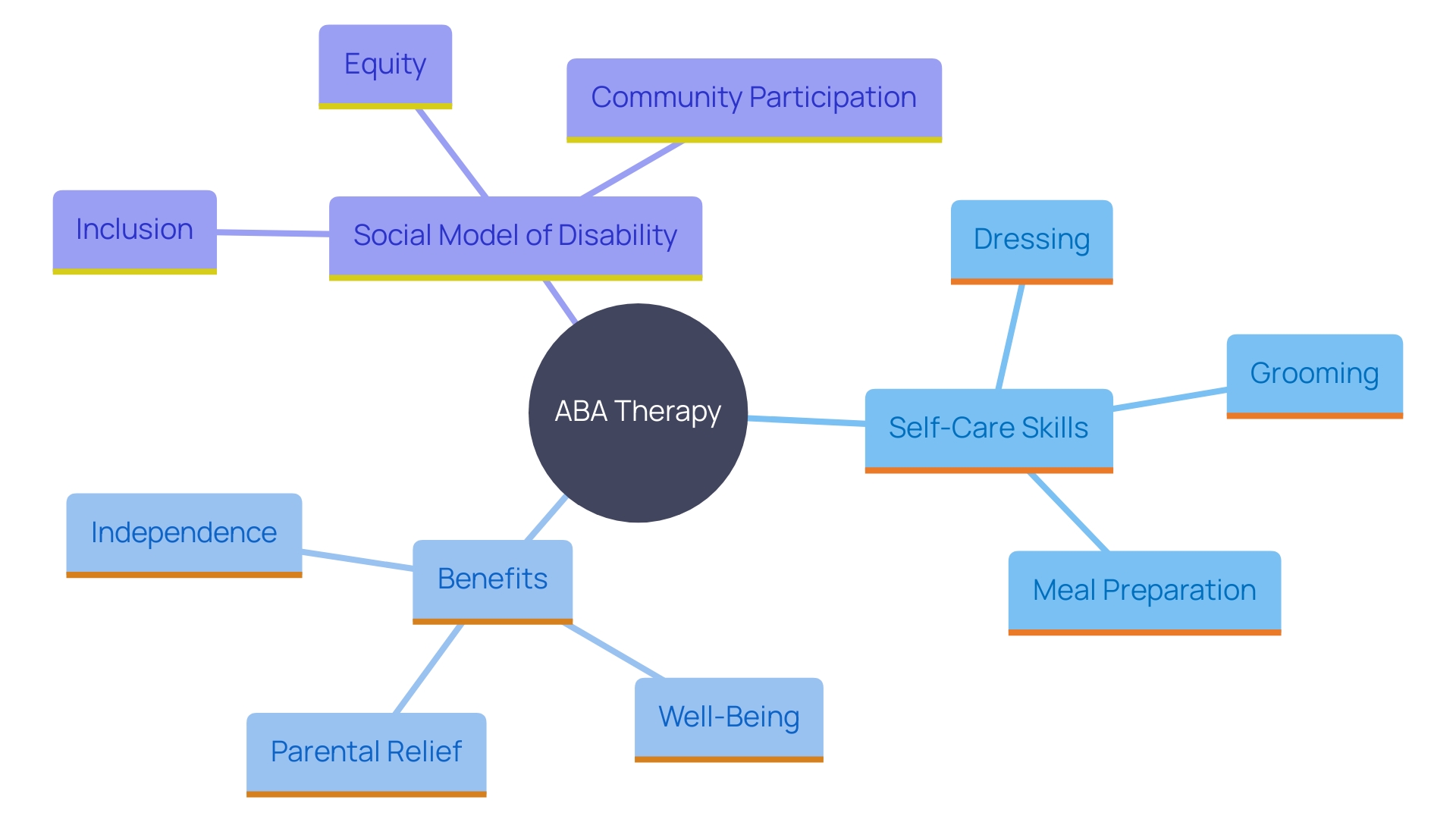
Academic and Cognitive Improvements
Studies show that young individuals receiving ABA treatment frequently attain significant academic and cognitive improvements. The personalized strategies and organized learning settings offered by ABA therapy allow young individuals to understand concepts more efficiently, resulting in improved academic performance. For instance, studies from programs like Brain Balance have shown significant improvements in areas such as focus, attention, and cognitive skills. These academic advancements not only enhance young people's confidence but also encourage a lifelong positive attitude towards education. As Dr. David (Dan) R. Offord aptly stated, ensuring young individuals have equitable support helps them thrive both academically and socially.
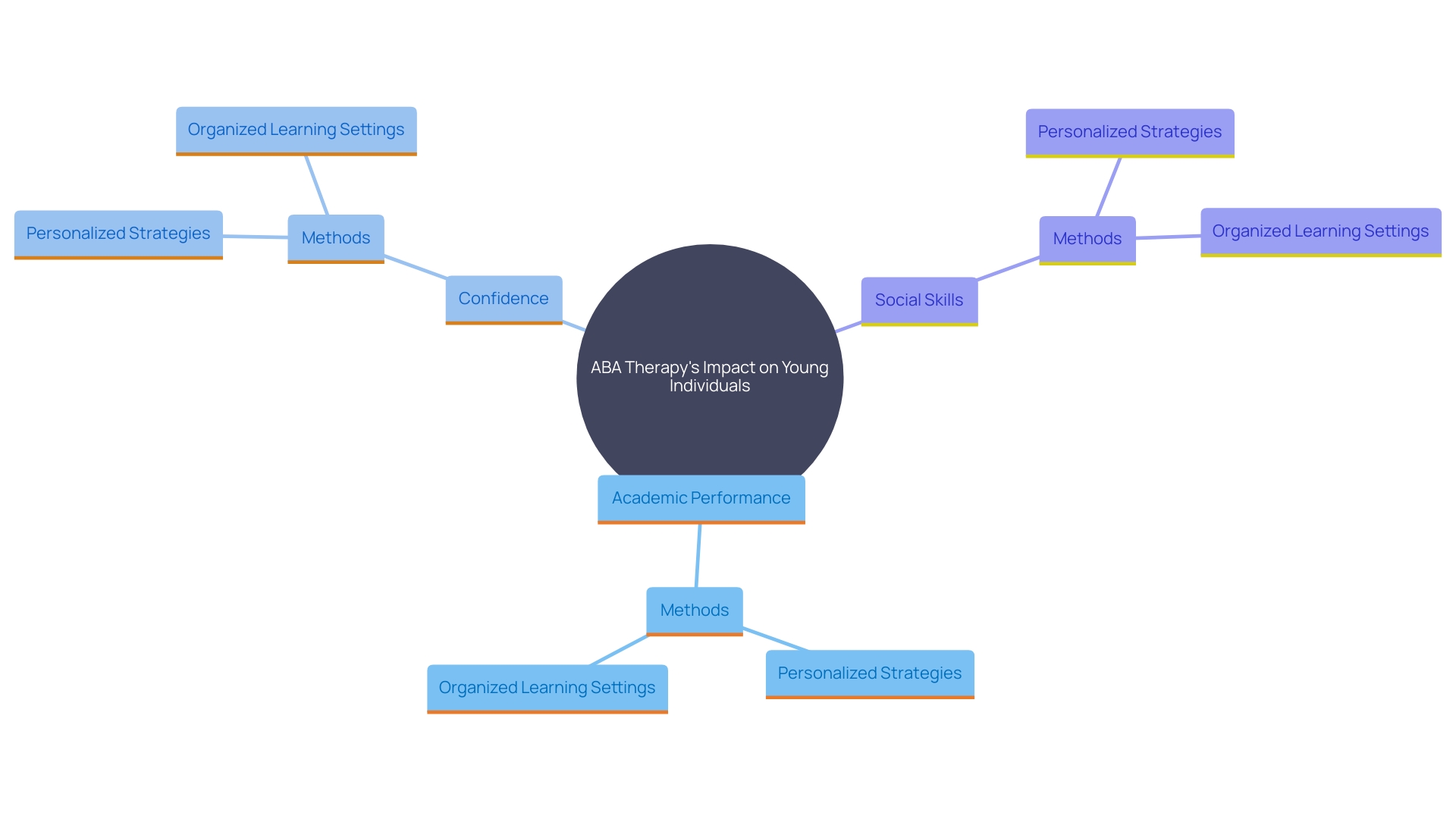
Importance of Early and Intensive Intervention
Prompt and intensive intervention is essential for maximizing the advantages of ABA treatment. Research consistently shows that individuals who begin therapy at a young age often experience significant improvements in behavior, communication, and social skills. A cornerstone of equity, early intervention ensures that individuals with disabilities receive the support they need to thrive. As Dr. David (Dan) R. Offord, a renowned psychiatrist specializing in youth, once stated, “I do not mind if my offspring are in a race as long as the race is fair.” By prioritizing early intervention, parents can play an active role in their offspring’s development, reducing chronic sources of stress and ensuring a fair start. This proactive approach not only supports the young person's immediate needs but also lays a strong foundation for future success.
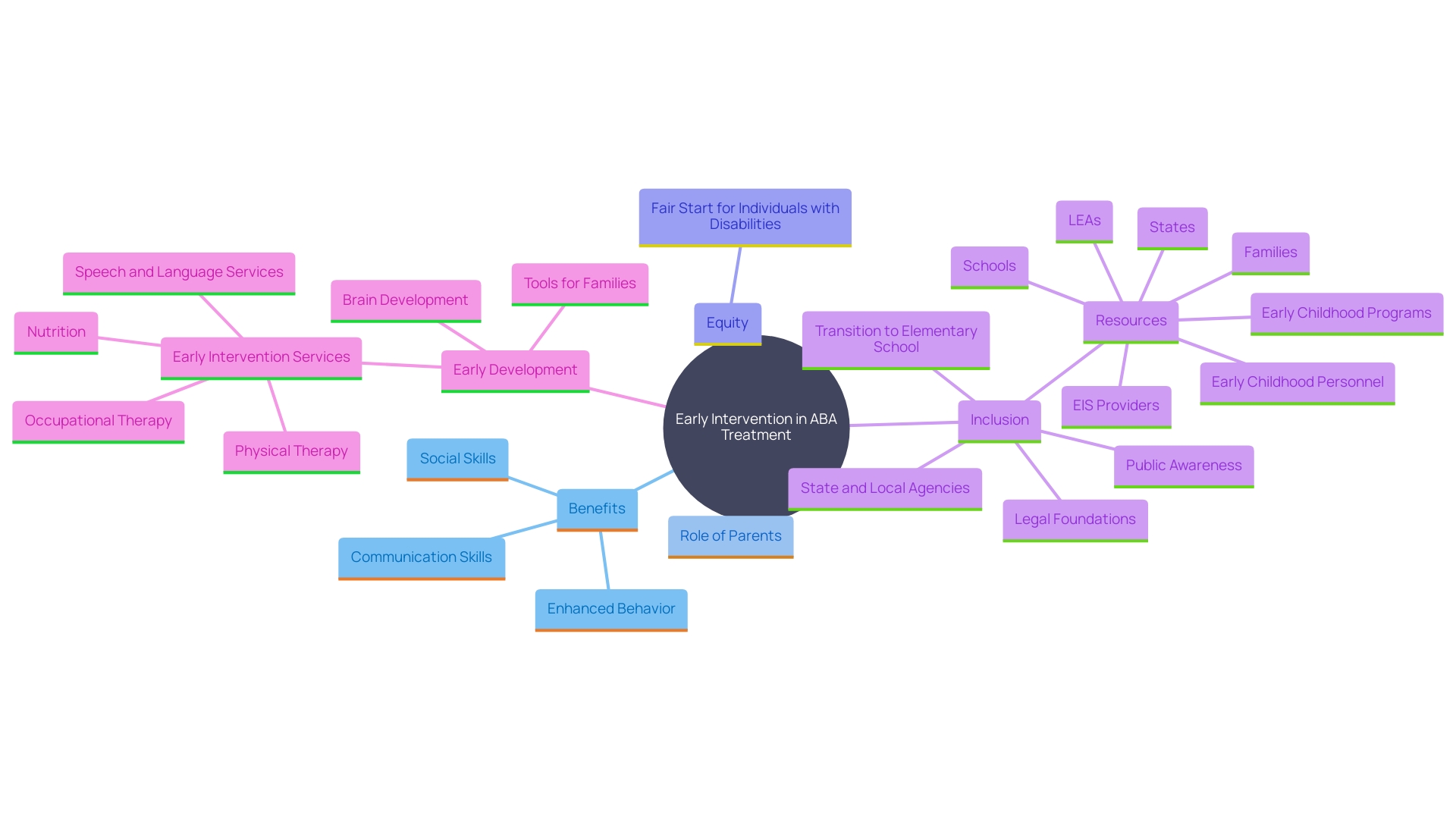
Research Evidence Supporting ABA Therapy
Multiple research efforts highlight the effectiveness of ABA treatment in improving results for youngsters with autism. This evidence is pivotal, especially as the prevalence of autism has significantly increased over the years, now affecting 1 in 36 children compared to 1 in 2,500 a few decades ago. Research consistently shows that ABA treatment results in significant advancements in communication, socialization, and adaptive abilities.
Dr. Jan Blacher, a research professor at UC Riverside, notes that the evolving understanding of autism has broadened the spectrum of individuals benefiting from ABA, including those with high IQs and varying adaptive skills. This shift in understanding has led to more tailored and effective interventions. Furthermore, the recent release of the ABA Practice Guidelines for the Treatment of Autism Spectrum Disorder by the Council of Autism Service Providers highlights the commitment to maintaining high standards in ABA implementation.
Parents can draw confidence from this robust body of evidence, knowing that ABA intervention is one of the most validated treatments for autism. As Dr. David Offord emphasized, ensuring young individuals with disabilities have the resources and support they need is crucial for their mental health and overall well-being. By advocating for ABA therapy, parents are not only supporting their child's development but also contributing to a more equitable and supportive environment for all children.
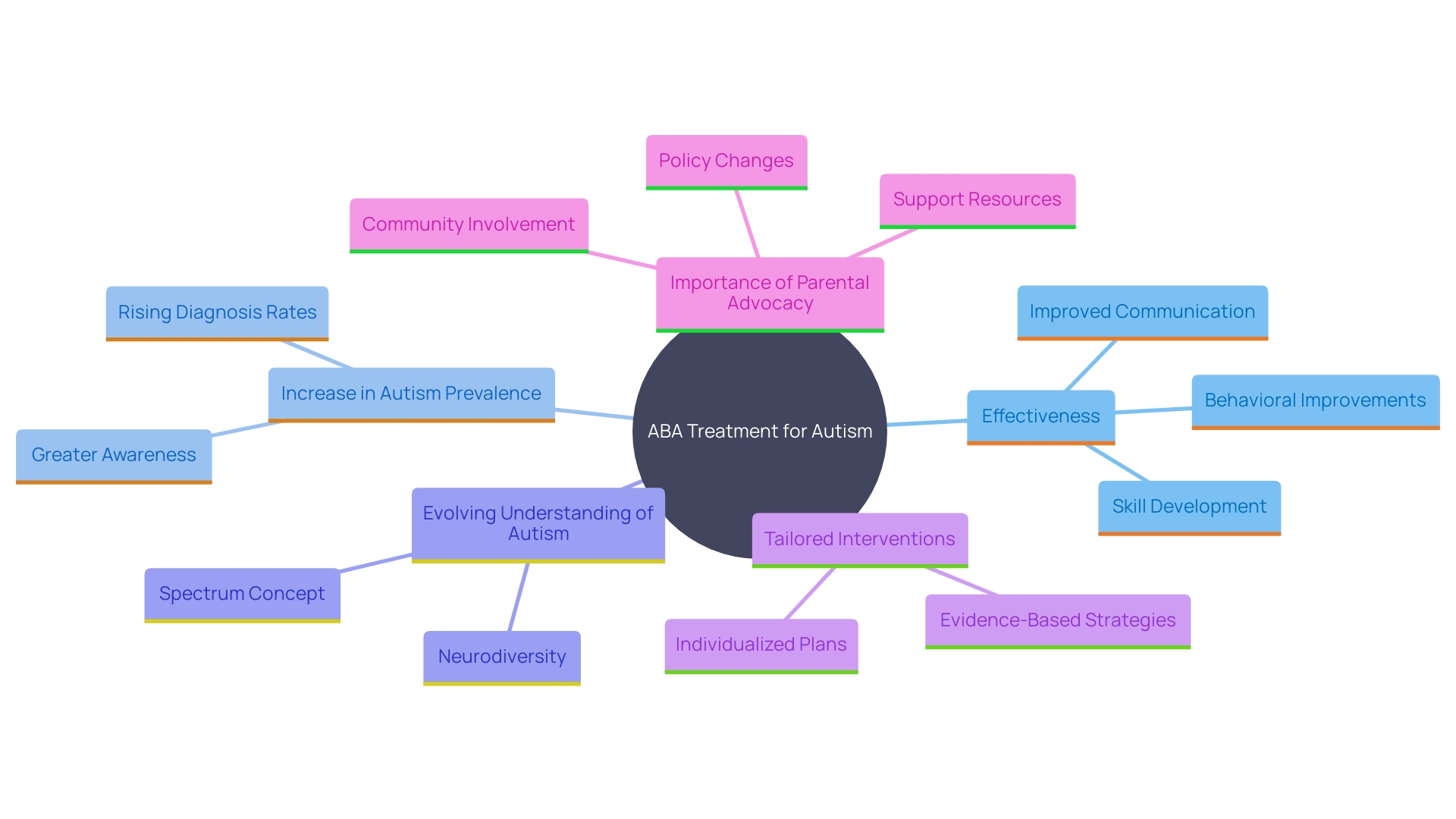
Conclusion
The benefits of Applied Behavior Analysis (ABA) therapy for children with autism are both profound and multifaceted. This structured approach not only enhances essential skills but also significantly reduces challenging behaviors, fostering a supportive environment for children and their families. As highlighted throughout the discussion, the ability of children with autism to engage effectively in their daily lives is foundational for their mental health and overall well-being.
Social skills development stands out as a critical advantage of ABA therapy. By focusing on appropriate interactions and understanding social cues, children gain confidence and a sense of belonging, which are essential for emotional health. Furthermore, improvements in language and communication skills enable children to express their needs and feelings, enhancing their relationships and daily interactions.
The reduction of challenging behaviors through targeted interventions creates a more harmonious home life, allowing families to enjoy more positive interactions. Additionally, the emphasis on fostering independence and self-care skills empowers children, alleviating some burdens from parents and promoting a balanced family dynamic. Academic and cognitive advancements achieved through ABA therapy further reinforce the importance of early and intensive intervention, laying a solid foundation for future success.
Robust research evidence supports the effectiveness of ABA therapy, demonstrating its ability to enhance communication, socialization, and adaptive skills in children with autism. By advocating for this proven approach, parents can play a vital role in ensuring their children receive the necessary support to thrive. Ultimately, embracing ABA therapy not only benefits individual children but also contributes to a more equitable and inclusive society for all.




